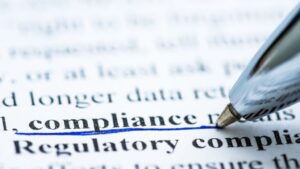Digital Forensics Investigation Management Committee, or DFIMC, is a management-level committee headed by the organization’s Chief Executive Officer or CEO. It works on behalf of the board to perform digital investigations related to financial crimes.
DFIMC is a part of the overall governance structure and the foundation of an effective digital forensics and electronic discovery program. In an organization such as a bank or a financial institution, the Board of Directors, through the DFIMC, ensures a strong digital forensics and investigation program to ensure data protection and cybersecurity compliance objectives.
Roles of DFIMC
The DFIMC regularly reviews and provides feedback to the board regarding the organization’s overall digital financial crime and risk profile.
DFIMC works with the business heads to ensure data compliance and creates compliance awareness through periodic MISC meetings and ongoing training, considering the risk-based approach to managing the information and data-related risks.
Being the second line of defense, the digital forensics team and the Digital Forensics Investigations Officer or DFIO are responsible for the execution of digital forensics and investigations in different areas and processes of the organization.
This comprises all the departmental heads as members of the committee. They meet periodically to discuss the financial crime risks, digital fraud incidents, digital forensics investigations in progress, and potential data loss risks due to the users’ possible cyberattacks or unauthorized data access.
Final Thoughts
The Digital Forensics Investigation Management Committee (DFIMC) plays an important role in managing digital forensics investigations. The DFIMC plays a critical role in ensuring that digital forensics investigations are conducted in a professional and effective manner. By developing policies and procedures, coordinating investigations, managing evidence, providing technical expertise, and ensuring compliance, the DFIMC helps to ensure that digital evidence is properly collected, preserved, and analyzed to support legal and regulatory proceedings.


